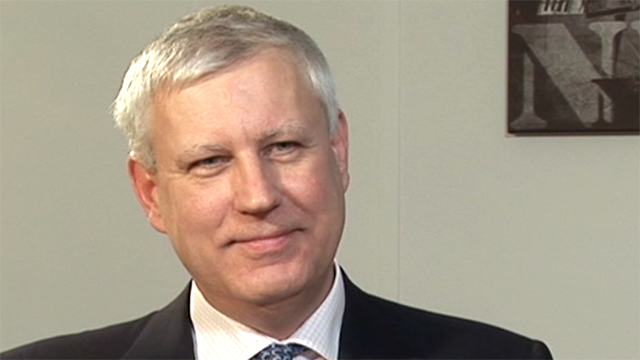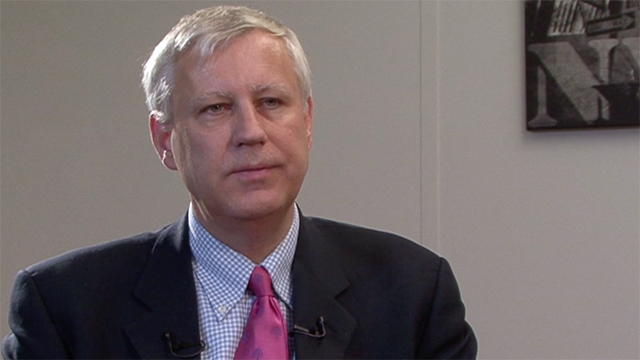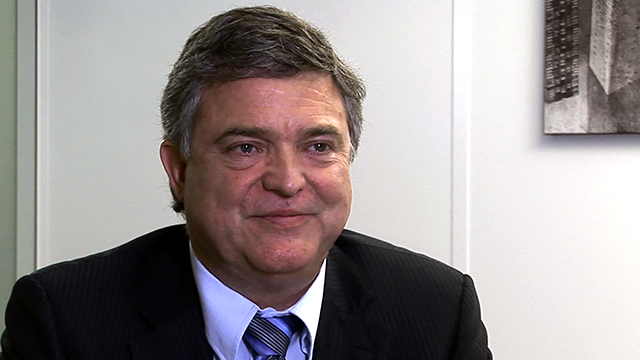EuroBusinessMedia (EBM): Theolia, an independent developer and operator of wind energy projects, addresses the market. Marc van't Noordende welcome. You are the CEO of Theolia. Following the agreement you’ve just reached with about 65% of your bondholders -- and ahead of your 2009 full-year earnings report -- you’ve decided to provide the market with a ‘CEO Update’. What are the main achievements of 2009 that you are looking to underscore for the market today, both on the operational front and on the financial front?
Marc van’t Noordende (MN): Well, 2009 was a very important year for Theolia as we tried to reposition our company for growth after the difficulties that we encountered in 2008. We steadily improved our operating effeciency by tight cash management, cost reduction, organisational streamlining in our headquarters in Aix-en-Provence and our operating companies in France, Brazil and Morocco. We sold 235 Megawatts against a target of 200 Megawatts, and at year-end our total capacity under management was 780 Megawatts, of which 319 of our own account and 461 for the account of third parties. We carried out an internal pipeline audit and we introduced new approaches for risk management and profitability monitoring of our projects. And as a consequence of this audit we will no longer report figures that include projects in appeal and projects that we develop for the account of third parties. We substantially improved our financial position in 2009 with a debt reduction of more than a hundred million and a year-end cash balance of 57 million. Finally, two days before the end of the year, we announced a very substantial financial restructuring programme to be implemented in 2010. If successful, it will greatly enhance our ability to invest in the pipeline, but it will also broaden the strategic options that are open to the company in the future.
EBM: Even if a majority of the bondholders are now behind you, you still need to convince your shareholders, at a forthcoming EGM, to agree to be diluted following your planned capital increase of 100 million euros. What makes you confident that you'll succeed in convincing them -- in other words, why to you think your proposed restructuring plan is a fair deal for all parties?
MN: Apart from the fact that there aren’t a lot of alternatives, I believe that the two pillars of the proposed restructuring plan - the renegotiated terms for the bond as well as the capital increase - are both essential to rejuvenate the company, for all of its stakeholders. I believe that in the mid- to long-term, our shareholders will gain more value out of this restructuring that they will loose in the short-term from the dilution that it will cause. And finally, I believe that this restructuring is the missing, but crucial element in the long-term value generation coming out of our pipeline.
EBM: If your 100MEUR capital increase gets approved by shareholders, can we assume that Theolia's future is now preserved? In other words, will you now have the capital required to finance your future growth, or is there a risk of seeing you come back to the market soon to ask for more capital?
MN: Well, the capital restructuring that we propose right now is first and foremost targeted to resolve the outstanding issues of our reimbursement obligations of the convertible bond. The size of the capital increase is directly related to that objective. Whether we will need more capital in the future - it’s too early to tell today. Our capital requirements will be primarily driven by our own ability to deliver out of our pipeline, as well as by the strategic options that present themselves to the company in the future.
EBM: Beyond the restructuring plan, what are the next steps in Theolia’s business plan, and why should we be confident that Theolia can deliver?
MN: In the near-term – 2010 -- the most important objective is of course to implement the financial restructuring that we have proposed. In addition to that important target I have defined the following additional targets: intensify our product development activities; continue to improve our operating efficiency; address the growth opportunities in markets such as India and Brazil; and finally, yes, also to continue to complete our disposal programme for the non-wind assets. The new management team is entirely motivated to deliver against these targets. And my confidence that we will be able to deliver comes from knowing where we came from, from knowing what we went through, and from seeing the results that we have realised to date.
EBM: Lastly, do you think that the medium- to long-term outlook for wind energy has been bolstered by the recent Copenhagen Summit? Do you see the EU taking initiatives that are likely to support Theolia’s business prospects?
MN: I see the Copenhagen meeting and the agreement reached there as just another step, another step to further the sentiments for renewable energy, particularly outside Europe. In Europe we are already very comfortable with the level of commitment of the national governments to long-term stable fixed feed-in tariffs. I believe that the demand for renewable energy, the requirement for renewable energy, will continue to grow significantly in the coming years as all of the countries involved in the Copenhagen Summit try to come very close to their stated emission reduction targets.
EBM Marc van't Noordende, CEO of Theolia, thank you very much indeed.




